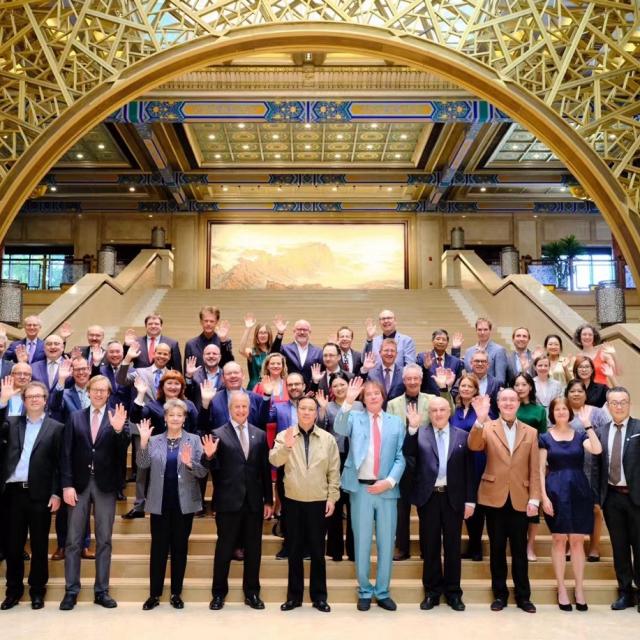What did it, and what does it mean to you?
I have not really done a lot of piano competitions, and I never really saw myself going into competitions. But with the Leeds, there is a lot of repertoire. You have to be very well prepared for the whole process, and it has a span of quite a long time- almost a whole year, which made me feel like, okay, this is enough time to see what I can do rather than what I can get from this competition. It provides me with a platform to actually play in front of really great musicians, and in front of my peers, my colleagues. It was great that I could play all rounds of the competition, I felt like I was being true to myself, and I am very proud that I came all the way to the end.
We were there for almost 20 days. You have to do literally four hours of repertoire, and you won´t know what you are going to play next until you have made it to the next round. It´s a very intense time, and it doesn’t allow you to reflect, or think how stressed out you are. All you can think of is: I need to practice! You have to force yourself to be very clear and focused, and you don´t have even one second to worry about anything that is not in your control.
This year´s Leeds had a lot of special features and activities, like the Piano Trail….
There were a lot of recycled pianos around the city, it was marvelous. It really shows how diverse this competition can be. But for us, the competitors, we were locking ourselves in a practice room, so we didn´t have much time or energy to go around and enjoy. Still, I keep hearing from people that they really like this project and enjoy all the different pianos on the road and on sidewalks. They are really fun to see!
Also, since they were renovating Leeds´ Town Hall, the competition took place in Bradford, where the hall is a bit more intimate. It felt really good, and the orchestra was fantastic, they were trying hard to be accommodating, to make you feel welcome, and to make music together.
After winning Second Prize, will the Leeds get you more concerts?
Yes, I’ve been fortunate to have several opportunities, which I’m really grateful for, especially considering that I graduated just two months ago. Graduation made me a little more aware of what might come next, and there was a bit of anxiety in realizing I’d have to navigate everything on my own. But then, Leeds happened, and it felt lovely to know that I could focus on what matters most to me: my music. Now, I have this incredible platform where people can get to know me, and it’s very rewarding.






